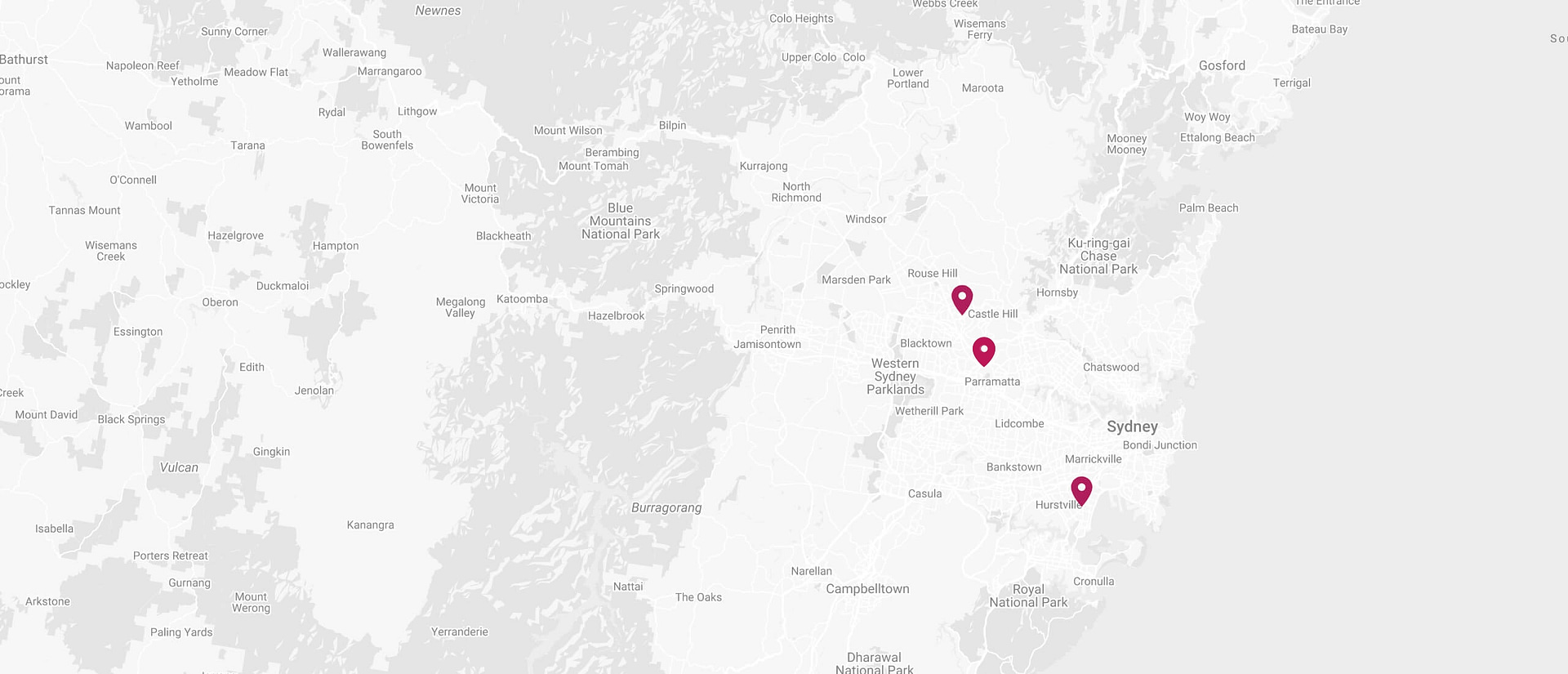Fibroids treatment & management | Sydney gynaecologist Dr Mahadik
Fibroids | Dr Anu Mahadik | Gynaecologist Sydney
What are uterine fibroids?
Uterine fibroids are relatively common non-cancerous growths that can develop in the uterus, typically in the walls. They are muscular tumours. They can grow as a single or multiple in the uterus. They also vary in size – they can be as small as a tic-tac or as big as a cricket ball. In some cases they can become even larger.
Fibroids can grow:
- In the uterine cavity (inside your uterus itself, attached to the wall of the lining)
- Inside the walls of the uterus
- Outside of your uterus
What are the symptoms of fibroids?
If you have fibroids, you won’t necessarily have symptoms. However some women have more serious symptoms that they find difficult to live with:
- Painful periods
- Heavy bleeding which may result in anemia
- Pain during sex
- Lower back pain
- Pressure on the bladder causing frequent urination
- Pressure on the rectum causing rectal pressure
- Very large fibroids can cause the abdomen to enlarge and sometimes make the women look pregnant
- A feeling of fullness in the lower stomach
- Pregnancy and labour complications, often resulting in delivery by c-section if the fibroids are deep in the uterus walls
- Infertility is very rare
Uterine fibroids may very rarely develop into cancer.
Dr Anu Mahadik | Gynaecologist Sydney
What is the treatment for uterine fibroids?
The treatment depends on your symptoms. Your doctor will be able to help determine the best treatment for you and your circumstances. Considerations include:
- Whether you have symptoms and how severe they are
- The size and location of the fibroids
- Your age and how close to menopause you might be
- If you wish to become pregnant in the future
If you are asymptomatic (have no symptoms) you may not need treatment. We may keep an eye on the growth of the fibroids during regular exams and reassess the situation if anything changes.
Medication
Medications can be used to treat fibroids where the symptoms are mild. These include:
- Over the counter pain-killers for mild pain
- Iron supplements to counteract heavy bleedy
- Birth control drugs may be prescribed to help control your symptoms such as the mini-pill, Depo or the Mirena IUD. These progesterone-based contraceptives can control bleeding
- Other drugs that can shrink your fibroids may be prescribed. If you need surgery, sometimes these are prescribed prior to shrink them before removal. If you stop taking these your fibroids may grow back quickly and your symptoms return
Surgery
If your symptoms are more severe your doctor may recommend surgery to remove the fibroids. There are several surgical options:
- Myomectomy will remove the fibroids only and not any healthy tissue. Myomectomy can be performed via laparoscopy or hysteroscopy or it may need to be a surgery that is performed with a cut in the belly. How it is performed depends on the type, size and location of your fibroids. New fibroids may still grow later
- Embolization – The blood vessel that is supplying blood to the fibroid is blocked. This causes the fibroids to shrink. This may be an inpatient or outpatient procedure
- Hysterectomy – If your fibroids are larger and are causing severe symptoms (and you do not want any more children) a hysterectomy may be performed. This removes your entire uterus. This is a major surgery

Dr Anu Mahadik | Gynaecologist Sydney
Frequently asked questions about uterine fibroids
Fibroids are relatively common. They typically occur during a woman’s child-bearing years.
It is not known for certain what causes fibroids. However it is thought that they may be impacted by genetics and hormonal levels. While it is known they are under hormonal control (both oestrogen and progesterone) it is not known exactly what causes them to grow or shrink.
They may grow rapidly during pregnancy, where hormone levels are high. They tend to shrink when anti-hormone medication is used and shrink or stop growing when menopause is reached.
Your risk of developing fibroids can increase with:
- Age. Fibroids are most common in young age and usually shrink after menopause
- Family history. There is thought to be a familial link, especially if your mother had fibroids. Other family members may also increase your risk
- Weight. Women who are overweight or obese are at a great risk
Fibroids may be found by your doctor in a regular pelvic exam. They can feel fibroids during such an examination. This is usually painless. They may feel an unusual lump in your uterus.
There are tests to confirm you have fibroids. These are imaging tests such as an ultrasound, MRI, x-ray or CT scan. It is possible that you may need surgery to confirm that you have fibroids. This may be either:
- A laparoscopy – a camera that is inserted through a tiny incision in or near your belly button. The scope has a bright light and a camera and is used to view, and possibly take pictures of, your uterus and other organs. This is performed under a general anaesthetic
- A hysteroscopy – a thin camera with a light is passed through your vagina and cervix and into the uterus. This option does not require any cut on your belly. This allows the doctor to look inside your uterus for fibroid or other problems such as polyps and also remove them. Photos may also be taken simultaneously
Sydney Obstetrician Norwest and St George Private Hospitals
Consulting in Westmead and Kogarah
My consulting rooms are in Westmead. If you are preparing for your antenatal care and looking for the best and most suitable solution, you can count on my practice to help you.
If you live in the Sydney CBD, or south of Sydney, you may be best served by coming to my rooms in Kogarah, at St George Private Hospital Medical Suites.
I am affiliated with Norwest Private Hospital, St George Private Hospital and Westmead Private Hospital.
Westmead Private Hospital welcomes over 2,300 babies into the world each year. They demonstrate a leading and innovative approach to outcome-focused care for women and their families prior to, during and after childbirth.
New parents will enjoy the modern conveniences and perks of a luxury hotel when they experience Westmead Private Hospital’s maternity unit, which has a strong emphasis on assisting new families in the journey of parenthood, with comprehensive postnatal education provided by their maternity team.
They have the unique advantage of being co-located with both Westmead Hospital and Westmead Children’s Hospital. This allows us to provide our patients with the highest standard of private care whilst having access to tertiary level care facilities if required (*access to Neonatal Intensive Care at Westmead Hospital and Westmead Children’s Hospital is dependent on bed availability).
The Maternity Unit comprises:
- 8 birthing suites
- 46 bed antenatal/ post natal unit
- 14 cot Special Care Nursery
- 8 spacious Parenting Suites (additional costs apply)
- Women’s only Infant Feeding Support Centre supported by experienced clinicians
- Education Centre
- Bathing Centre
- Rooftop garden for the whole family to enjoy
- All private rooms with ensuite
Guaranteed Private Room
Westmead Private Hospital is pleased to offer all of our maternity patients the guarantee of a private room following the birth of their baby. One support person is welcome to stay free of charge.
More information on the maternity services at Westmead Private Hospital.
I come from a family of doctors and it has always been my intuitive first choice to become an Obstetrician and Gynaecologist. I basically grew up in it, with my father being one of the co-founders of a series of IVF clinics in India. Care for mothers and the babies they are expecting has always been my first nature and I am grateful for being able to serve my patients in their journey.
So if you are in that phase where you are not sure how to choose a private obstetrician in Sydney, let’s have a chat so we can plan your antenatal care together.
